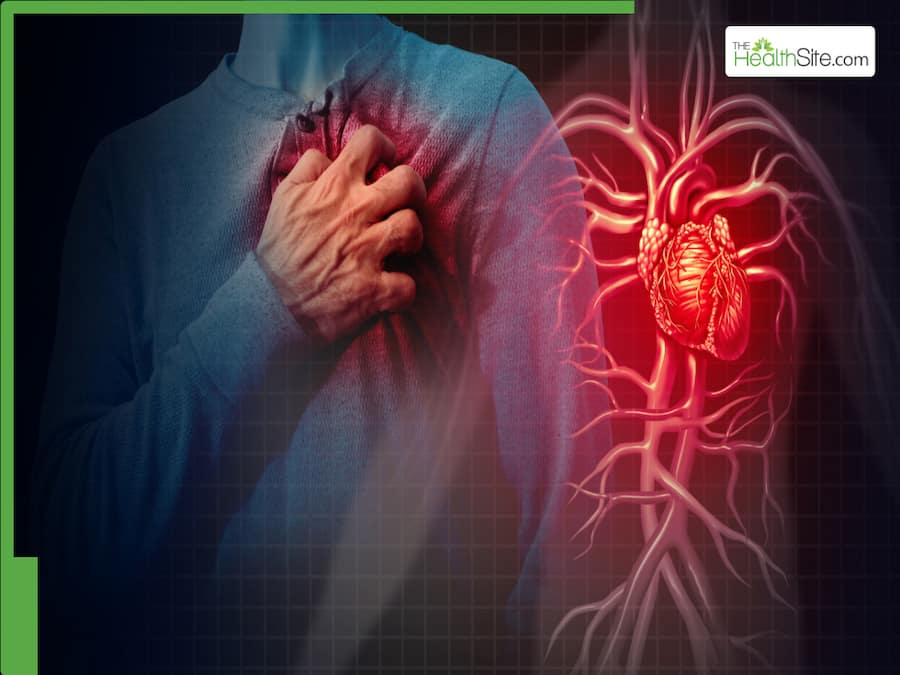These signs should not be ignored, as they include arrhythmia, heart disease, or even a heart attack, managing heart conditions and maintaining long-term health.

An abnormal heartbeat or arrhythmia can be a warning sign of various underlying health conditions. While occasional irregular heartbeats might not always cause concern, warning signs should never be ignored. Listening to your body is crucial, as it may indicate something more serious. An abnormal heartbeat can be a serious condition that warrants immediate attention, especially if it is accompanied by fainting.
Here are eight warning signs of an abnormal heartbeat you shouldn’t overlook:
- Irregular Heartbeat When Checking Your Pulse: An easy way to monitor your heartbeat is by checking your pulse. If you notice that your heart rate is irregular, either too fast or too slow, or if the rhythm feels erratic, it could indicate an arrhythmia. A regular pulse is steady and follows a predictable pattern, but an irregular one can suggest something wrong. If you’re unsure whether your pulse is irregular or experiencing any of the other symptoms mentioned, it’s worth getting a professional evaluation.
- Shortness of Breath: If your heart is not beating correctly, it may struggle to pump blood effectively, decreasing oxygen supply to your body. This can cause shortness of breath or difficulty breathing, particularly during physical activity or even at rest. If you experience unexplained breathlessness, it could indicate an abnormal heartbeat affecting your heart’s ability to function correctly. Seek medical help, especially if this symptom is new or has worsened.
- Dizziness or Lightheadedness: Feeling dizzy or lightheaded, particularly when standing up quickly, can sometimes be linked to an abnormal heartbeat. Arrhythmias can affect the amount of blood reaching. Feeling faint, dizzy, or like you might pass out could indicate that your heart isn’t pumping blood efficiently. These episodes should be taken seriously, as they may indicate a more severe condition, such as atrial fibrillation or a heart block.
- Chest Pain or Discomfort: Chest pain, tightness, or discomfort is a severe symptom that could indicate a heart attack or arrhythmia. If you experience these sensations and other symptoms, such as sweating, nausea, or pain radiating to the arms or jaw, it’s crucial to seek emergency medical attention immediately. An abnormal heartbeat can sometimes cause chest pain, even if it is mild or comes and goes, and it’s essential not to ignore it.
- Fatigue or Weakness: Even after a good night’s sleep, persistent fatigue can indicate your heart is not working correctly. When the heart isn’t beating regularly, it can’t pump blood efficiently, leading to fatigue, weakness, or unwellness. If you find yourself unusually tired and unable to carry out your daily activities as usual, it’s worth investigating whether an arrhythmia could be the underlying cause.
- Fainting or Near-Fainting Episodes: Fainting or feeling as though you might faint is a concerning symptom, especially if it happens suddenly or without an apparent reason. This can occur if your heart rhythm is abnormal. If you faint or experience near-fainting episodes, it could signal a potentially dangerous heart condition, like ventricular arrhythmias or other heart disorders.
- Palpitations are sensations when your heart beats too hard, fast, or irregularly. While they are often harmless and linked to stress or exercise, frequent palpitations can signal an arrhythmia, mainly when they occur without apparent triggers. Please pay attention to when palpitations arise, how long they last, and whether other symptoms like dizziness or chest pain accompany them.
- Swelling in the Legs, Ankles, or Feet: Swelling in the lower extremities, especially the legs, ankles, or feet, can indicate poor circulation caused by an abnormal heartbeat. When the heart fails to pump effectively, blood can pool in the veins, causing swelling. This condition, known as oedema, may also be accompanied by other symptoms like shortness of breath or fatigue.
Don’t Miss Out on the Latest Updates.
Subscribe to Our Newsletter Today!

